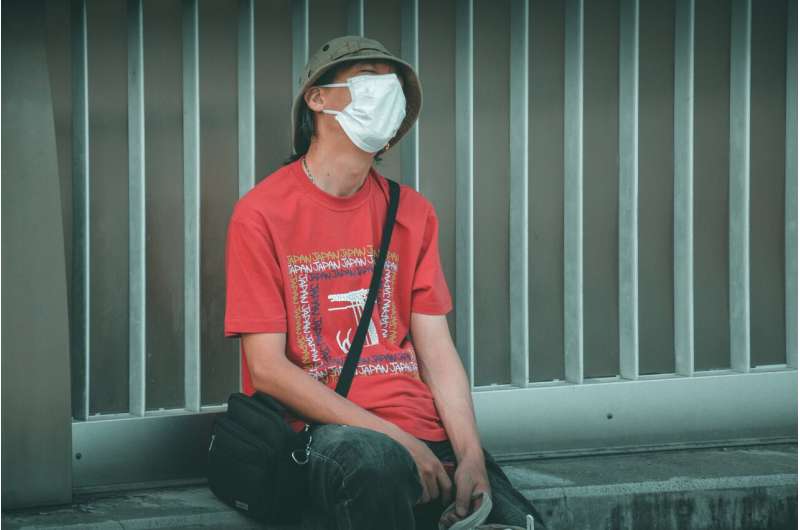
Research by psychologists from the School of Psychology at Swansea University has found that people’s fear of COVID-19 has led to worsened mental health. The study, just published in the Journal of Health Psychology, also found that older participants and those from minority ethnic groups were most likely to experience COVID-19 fear.
The researchers examined the impact of COVID-19 fear on key aspects of psychological well-being with an online survey of the same sample of participants at two different timepoints during the pandemic.
The first timepoint took place in February 2021, when daily death rates and hospitalizations were at their highest during the pandemic (to date) and vaccination rates were low. At this point, COVID-19 fear predicted higher levels of anxiety, depression, worry, loneliness, sleep difficulties and problems coping with uncertainty
The second timepoint took place in June 2021, when daily death rates and hospitalizations had dropped considerably, and many participants had received two vaccinations. At this second point, levels of COVID-19 fear had decreased; however, fear of the virus still predicted higher levels of worry, sleep difficulties and problems in dealing with uncertain situations.
In this way, the impact of COVID-19 evolved, affecting different aspects of well-being among the same sample of participants.
Dr. Martyn Quigley, Lecturer in Psychology at Swansea University, who led the study, said, “This research demonstrates the significant toll of the pandemic on the psychological well-being of many people, especially at the most challenging times during the pandemic. What is particularly striking though is that COVID-19 fear continued to have an impact on people’s well-being when circumstances had appeared to considerably improve, thus demonstrating the long-term impact of the pandemic on well-being.”
Source: Read Full Article
